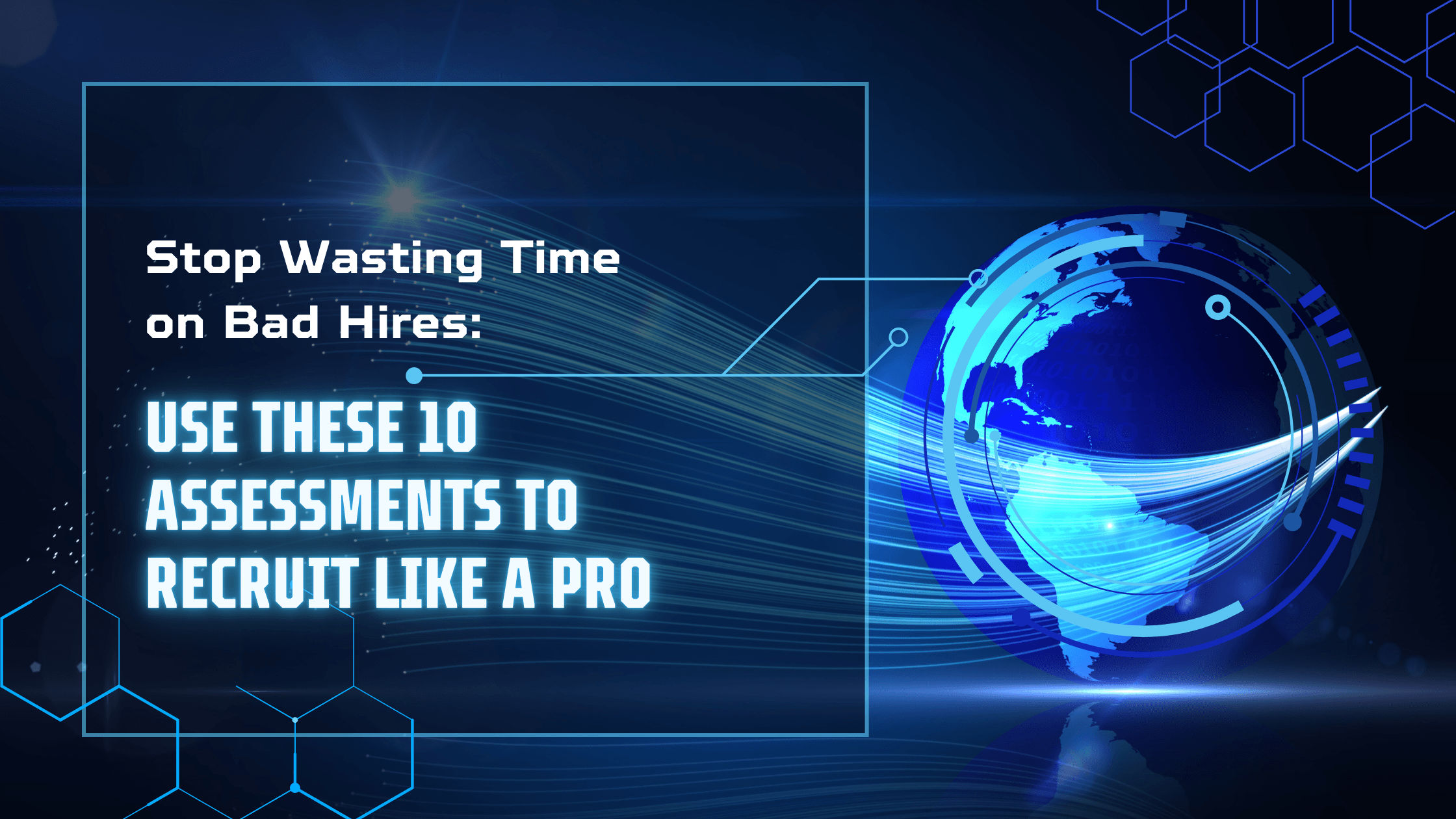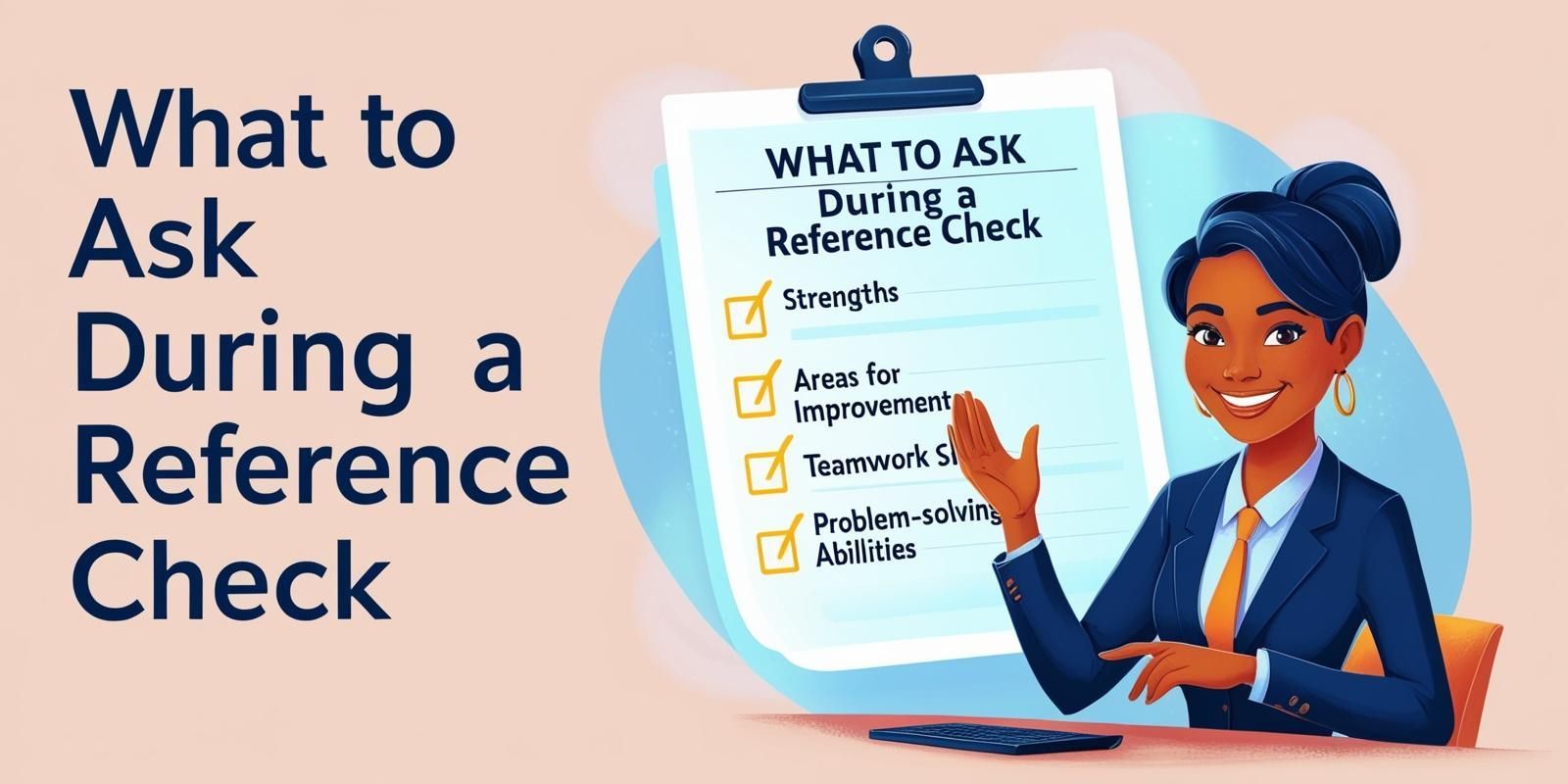Stop Wasting Time on Bad Hires: Use These 10 Assessments to Recruit Like a Pro

Alright, fellow recruiters, let's talk about candidate assessments. We've all been there: staring into the abyss of a hundred resumes, wondering which candidate actually knows their stuff and which is just a master of buzzwords. Turns out, gut feelings only get you so far. It's time to trade that crystal ball for data, baby!
1. Resume Screening: The Art of the Skim (But Make it Smart)
Yeah, yeah, you know resumes. But are you really optimizing that first glance? A recent study by SHRM found that recruiters spend an average of just six seconds reviewing a resume. SIX SECONDS! That's less time than it takes to microwave popcorn.
Why It Still Matters: It's the gatekeeper. Get your ATS in shape, people. Use those keywords, and filter like you mean it.
Witty Tip: Think of your ATS as a bouncer. Is this resume VIP material or heading straight to the reject pile?
2. Cognitive Ability Tests: Unleash the Brainpower
Want to know if your candidate is sharp as a tack? Cognitive ability tests measure that raw processing power. These tests are especially gold for roles where quick thinking is a must.
Why It Works: Data shows a strong link between cognitive ability and job performance. A Harvard Business Review study found that cognitive skills are twice as predictive as interviews alone. BOOM!
Example Tools: Wonderlic, Criteria Cognitive Aptitude Test (CCAT).
Witty Tip: It's like giving their brain a workout. Can they handle the mental reps?
3. Personality Assessments: Decoding the Quirks
Ever hired someone who was technically brilliant but a total culture bomb? Enter personality assessments. They help you understand if a candidate’s style meshes with your team.
Why It Works: A study in the Journal of Applied Psychology revealed that personality assessments can improve hiring success by up to 55%. That's a lot of potentially avoided headaches.
Example Tools: Myers-Briggs (though maybe take it with a grain of salt), DISC Personality Assessment.
Witty Tip: Are they a team player or a lone wolf? Do they thrive in chaos or crave structure? Time to find out!
4. Skills Assessments: Proof is in the Pudding (or Code)
Talk is cheap. Skills assessments let candidates SHOW you what they’ve got. Coding challenges for devs, writing samples for marketers—you get the idea.
Why It Works: With the rise of remote work, skills assessments are more important than ever. They prove a candidate's claims are legit, no matter where they're located.
Example Tools: HackerRank, Coderbyte, TestDome.
Witty Tip: Don't just take their word for it; make them prove it. "Show, don't tell" is the name of the game.
5. Behavioral Interviews: Turn Storytime into Insight
“Tell me about a time you…” Sound familiar? Behavioral interviews are your chance to dig into past experiences. Use the STAR method (Situation, Task, Action, Result) to get the juicy details.
Why It Works: It's a classic for a reason. Past behavior predicts future behavior. Simple as that.
Witty Tip: Think of yourself as a detective. Uncover their problem-solving skills, resilience, and teamwork abilities.
6. Situational Judgment Tests (SJTs): What Would You Do?
Throw candidates into hypothetical workplace scenarios and see how they react. SJTs are perfect for assessing judgment, decision-making, and interpersonal skills.
Why It Works: They’re like mini-simulations of the job, giving you a sneak peek at how a candidate handles pressure.
Example Tools: SHL Situational Judgement Tests, custom scenarios tailored to your biz.
Witty Tip: It’s like playing “Choose Your Own Adventure,” but with real-world consequences.
7. Work Sample Tests: Real-World Trials
Want to see if a candidate can actually do the job? Give them a task similar to what they'd do daily. Graphic designers create a logo, writers craft a blog post, you get it.
Why It Works: It's the most direct way to assess skills. No theory, just pure, unadulterated performance.
Witty Tip: It’s like a test drive before you buy the car. Does it purr like a kitten or sputter like a jalopy?
8. Emotional Intelligence (EQ) Assessments: The People Skills Factor
In today's collaborative workplaces, EQ is a superpower. EQ assessments measure empathy, self-awareness, and communication skills.
Why It Works: High EQ correlates with better leadership, teamwork, and customer service skills. Need I say more?
Example Tools: EQ-i 2.0, TalentSmart EQ Appraisal.
Witty Tip: Can they play well with others? Do they understand emotions (including their own)? EQ is the X-factor.
9. Group Exercises: Watch Them Work (and Play)
For teamwork-heavy roles, group exercises are a must. See how candidates communicate, collaborate, and navigate team dynamics.
Why It Works: It’s like a reality show, but for hiring.
Witty Tip: Do they lead, follow, or just stir the pot?

10. Reference Checks: The OG Assessment
Don’t underestimate the power of a good reference check. Get insights from former colleagues and managers.
Why It Works: Validation is key. Plus, you might uncover some gold nuggets of information.
Witty Tip: Ask open-ended questions. "What was their biggest strength?" and “What areas could they improve?” are your best friends.
The Bottom Line: Assessment Nirvana
The key is to mix and match. No one assessment is a magic bullet. Find the combo that fits your needs and your company culture.
And hey, speaking of making your life easier, Recruitica’s here to help! We offer free tools and expert guidance to streamline your hiring process, from crafting killer job descriptions to nailing those behavioral interviews. Because, let’s face it, recruiting is hard enough. Why not make it a little easier (and a lot more effective)?